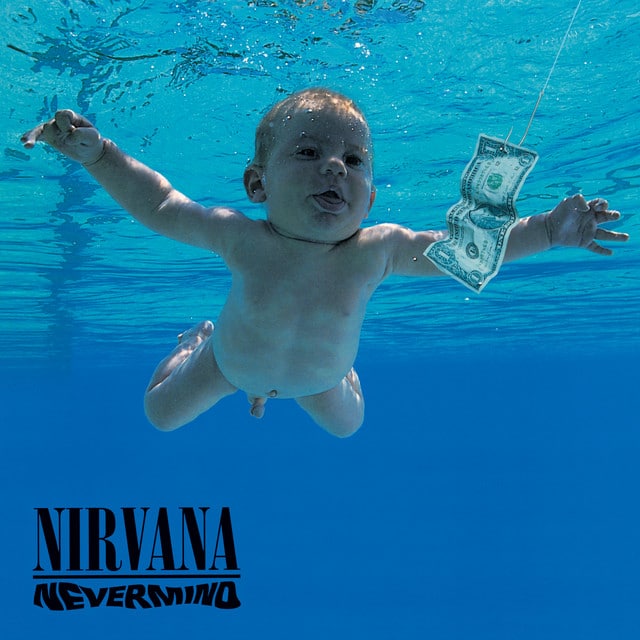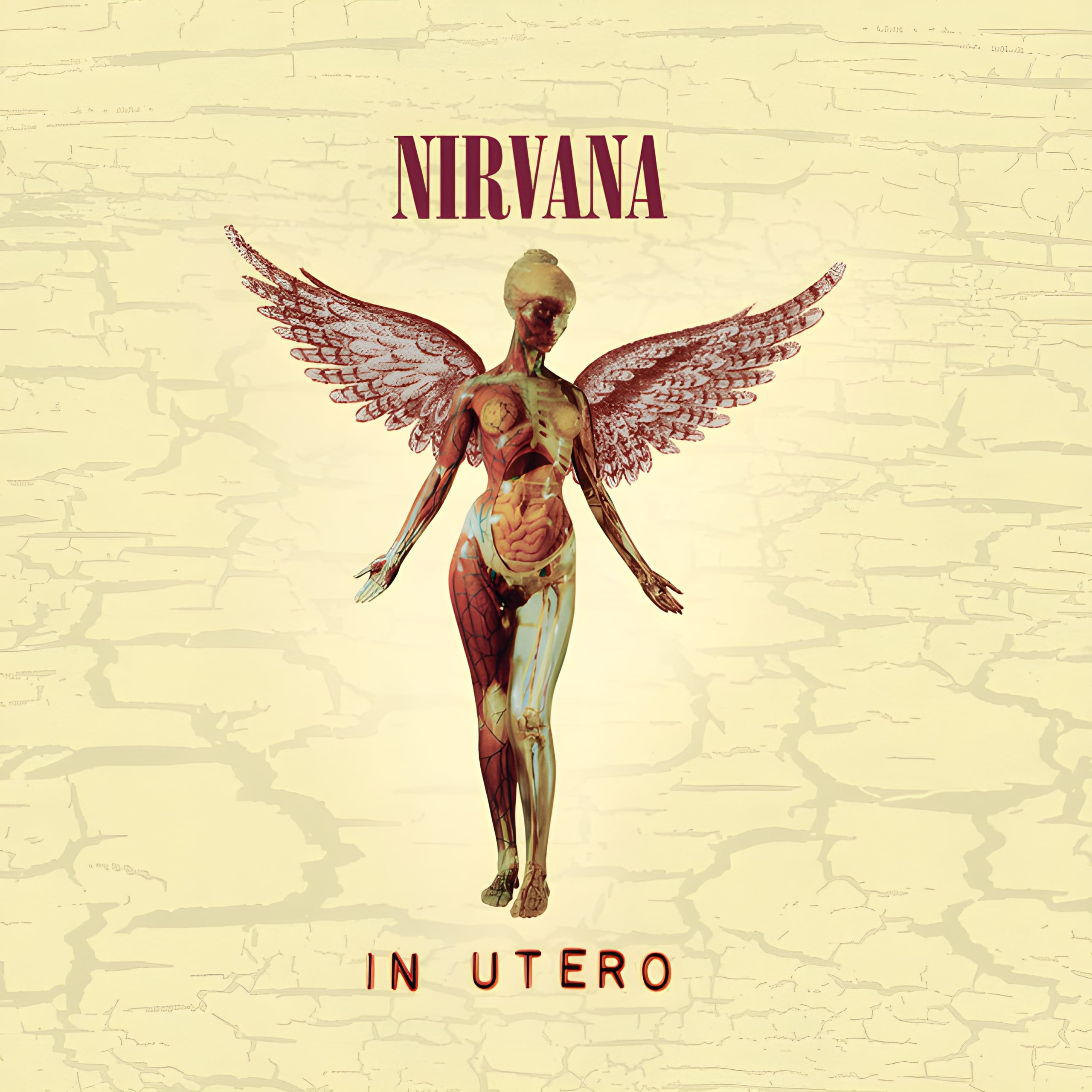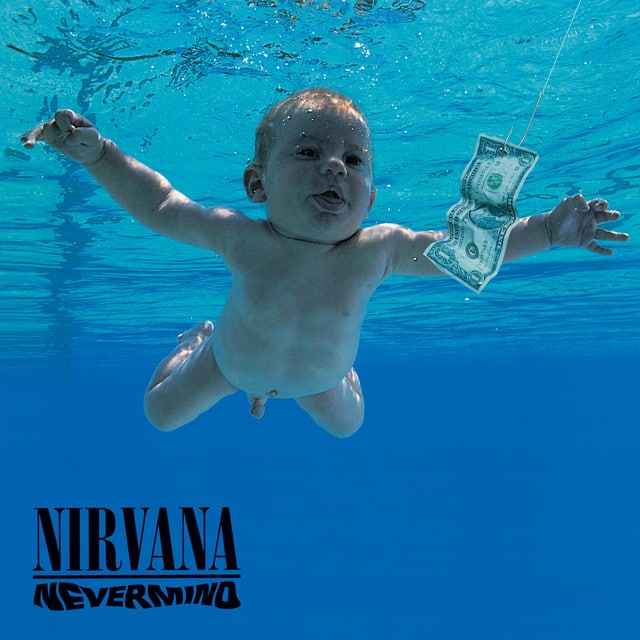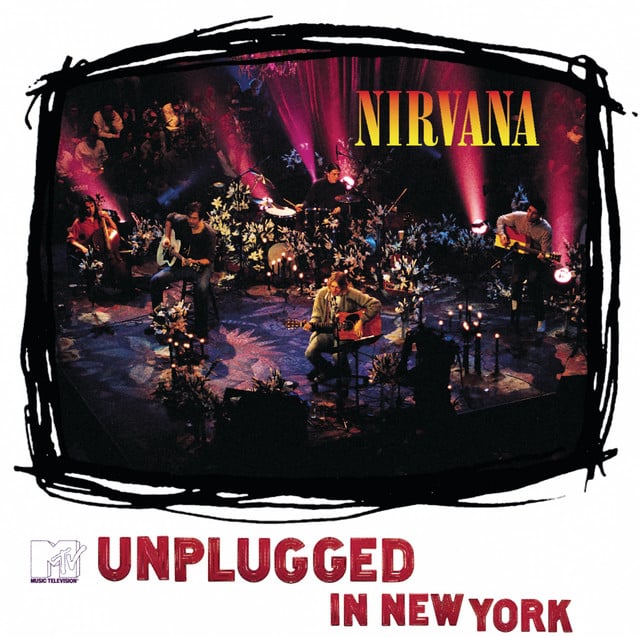Released: 1991
“Lithium” by Nirvana, grunge rock’s poster child, is a beautiful mess of contradictions immersed in the raw, unfiltered pain of existence. It’s a hailstorm of emotions, from self-loathing to ecstasy and from isolation to salvation, where personal demons dance with the divine.
The lyrics, penned by the late Kurt Cobain, kick off with a paradox: “I’m so happy ’cause today I found my friends / They’re in my head.” This immediately transports us into Cobain’s complex, often troubled psyche — a place where friendship equates to internal voices, a sign of inner turmoil and potential mental instability. The subsequent acknowledgment of his own and others’ ugliness ties right into the grunge ethos — raw, imperfect, and unapologetic.
The image of “broke our mirrors” conveys a disregard for physical beauty or possibly an aversion to self-reflection. The mantra “Sunday morning is every day for all I care” is an invitation to view every day as a new beginning, or alternatively, to blur the lines of time in a state of numbness. The line directly contradicts traditional Christian views of Sunday as a day of rest and sacredness. The following line, “I’m not scared,” could be interpreted as a brave front against the fear often associated with introspection and vulnerability.
‘Cause I’ve found God’: This profound claim isn’t your usual run-of-the-mill religious epiphany; it’s Cobain’s sardonic response to his battles with despair, depression, and drug addiction. It suggests his quest for salvation or some form of existential solution.
With “I’m so lonely, that’s okay, I shaved my head / And I’m not sad,” Cobain continues to embrace antagonism. He takes loneliness and transforms it into empowerment through a simple act of shaving his head, a traditional sign of defiance or starting anew. His admission of causing pain, not knowing if he’s to blame, hints at the guilt riding shotgun with self-analysis. The part about being excited and horny feels like a nod towards the raw, unadulterated desire for life’s many experiences, good or bad, as a means to feel something, anything.
The recurring chorus, “I like it, I’m not gonna crack / I miss you, I’m not gonna crack / I love you, I’m not gonna crack / I killed you, I’m not gonna crack,” is a resounding battle cry against the pressures of life, relationships, love, loss, and self-destruction. “Crack” in this context likely refers to a mental breakdown or succumbing to pressures. It suggests Cobain’s determined resilience to maintain his mental composure despite the overwhelming odds.
“Lithium,” in essence, is a raw, primal howl from the dark edges of human experience. It’s a quintessential grunge anthem that embodies the anguish and ecstasy of a generation caught in existential crosshairs, a beacon of light for those navigating through the fog of their existence.








